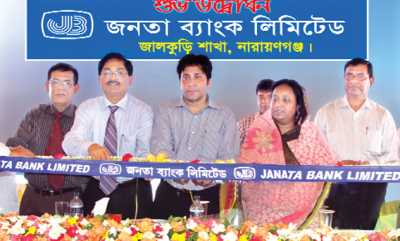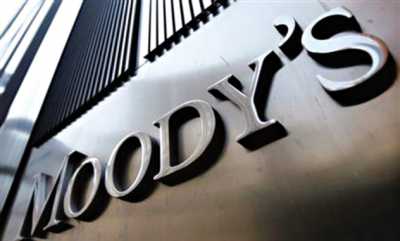Banking
Janata Bank opens branch in N’ganj
 SM Aminur Rahman, Managing Director and CEO of Janata Banlk Limited, inaugurates a branch of the bank at Katpotti Bazar in Narayanganj.
SM Aminur Rahman, Managing Director and CEO of Janata Banlk Limited, inaugurates a branch of the bank at Katpotti Bazar in Narayanganj.
The state-owned Janata Bank Limited opened its 881th branch at Katpotti Bazar in Narayanganj.
SM Aminur Rahman, Managing Director and CEO of Janata Banlk Limited inaugurated the branch, said a press release Friday.
Dr. Salina Hayat Ivy, Mayor of Narayangonj City Corporation attended the inaugural ceremony as chief guest.
Md Abdullah Al Kaisar, MP, Md Dabir Uddin Ahmed and Dr. RM Debnath, directors of the bank, S M Aminur Rahman, CEO and Managing Director, Md. Abdus Salam, DMD, Md. Mohsin Mia GM, Divisional Office, Dhaka South were also present.
The Daily Sun/Bangladesh/ 23th June 2012
Banking Division utilises 19pc ADP this FYMinistry asks for speeding up spending
The planning ministry has identified severe inefficieniesy in implementation of annual development programme (ADP) by the Banking Division of the Finance Ministry in 2011-12 fiscal and asked the authorities concerned to accelerate the execution process as much as possible by the end of the outgoing fiscal.
In a letter sent to Banking Division Secretary Safiqur Rahman Patwary on June 13, the Implementation, Monitoring and Evaluation Division (IMED) of the Planning Ministry also advised the concerned ministry’s head to cancel the holidays of all concerned officials and employees in order to achieve higher progress in ADP implementation.
The Planning Ministry letter reads that utilisation of ADP allocation for the Banking Division in the current FY is only 19 percent till May 2012. This is 51 percent less than the national ADP implementation rate of 70 percent. “If needed, please interfere in person and cancel weekly holidays of concerned officials in order to achieve 100 percent progress in the ADP spending,” IMED Secretary Md Mozammel Hoque Khan has asked the Banking Division secretary.
The ADP allocation for the Banking Division in FY 2011-12 was Tk. 1758 million for five projects including Central Bank Strengthening Project (CBSP) and Improvement of Capital Market Governance (ICMG) Project.
The CBSP project was funded by World Bank while the Asian Development Bank provided fund for the ICMG project.
The IMED letter mentioned that the achievement in ADP implementation by the Banking Division was 48 percent in FY 2010-11.
In the letter, the IMED secretary said the low progress in ADP spending might affect the government’s fiscal achievements.
The country’s ADP implementation in FY 2010-11, FY 2009-10 and FY 2008-09 were 92 percent, 91 percent and 86 percent respectively, the letter reads.
The Daily Sun/Bangladesh/ 23th June 2012
IMF says euro banking union needed now
WASHINGTON: The IMF yesterday said the euro area needs to move now to establish full banking union and that the European Central Bank should move on more demand-generating stimulus policies.
Underscoring that the eurozone crisis is in a “critical stage”, the International Monetary Fund stepped up pressure on Europe’s leaders to take real action on the banking sector and economic growth in their coming summit.
The Fund said in its annual review of the euro area economy that boosting demand cannot wait for structural reforms across the eurozone.
And it insisted, echoing the international pressure that was clear in the G20 summit in Mexico on Monday and Tuesday, that the region needed to establish a unified system for bank monitoring, resolution and deposit insurance.
“The euro area crisis has reached a critical stage,” the IMF said. “Despite extraordinary policy actions, bank and sovereign markets in many parts of the euro area remain under acute stress, raising questions about the viability of the monetary union itself.”
The Daily Sun/Bangladesh/ 23th June 2012
World’s top banks hit with Moody’s downgrade
 A Moody’s sign on the 7 World Trade Center tower is photographed in New York in this file photo. Photo afP
A Moody’s sign on the 7 World Trade Center tower is photographed in New York in this file photo. Photo afP
WASHINGTON: The health of 15 of the world’s largest financial institutions has been called into serious question after Moody’s downgraded their credit ratings, citing risk exposure and the eurozone crisis.
Some of the biggest names in banking—including Goldman Sachs, Barclays, Citigroup, HSBC and Deutsche Bank—saw their ratings slashed Thursday, spelling increased investor scrutiny and potentially higher borrowing costs.
Moody’s said, in essence, that the banks risked massive losses and that they were exposed to the roiling financial crisis and to each other.
“All of the banks affected by today’s actions have significant exposure to the volatility and risk of outsized losses inherent to capital markets activities,” said Greg Bauer, Moody’s global banking managing.
In total four firms were downgraded by one notch, 10 firms by two notches and one by three notches.
Holding companies of a number of the same banks were also downgraded.
Credit Suisse faced the largest downgrade, with its rating slashed three levels from Aa1 to A1.
Under-pressure US banking giant Morgan Stanley was seen as winning a partial victory by only receiving a two-notch downgrade.
Morgan Stanley welcomed the partial reprieve, but nevertheless questioned the Moody’s decision.
“While Moody’s revised ratings are better than its initial guidance of up to three notches, we believe the ratings still do not fully reflect the key strategic actions we have taken in recent years,” it said in a statement.
Royal Bank of Scotland, which was also downgraded, called the ratings change “backward-looking,” saying it did not recognize the “substantial improvements the group has made to its balance sheet, funding and risk profile.”
Citigroup was similarly unimpressed with the Moody’s verdict.
“Citi strongly disagrees with Moody’s analysis of the banking industry and firmly believes its downgrade of Citi is arbitrary and completely unwarranted.”
In a jab Citi added that “sophisticated” investors no longer depend heavily on ratings agencies to assess credit risk.
Ratings agencies like Moody’s were pilloried for failing to predict the cataclysm that engulfed Wall Street and the world beginning in 2008, and Thursday’s move was part of a sector-wide effort to tighten up ratings.
But even so, the swathe of downgrades amounts to a fresh indictment of the health of the global financial system, which has seen wave after wave of crisis over the last four years.
Since the sub-prime crisis banks have seen the value of their assets slump and their access to capital shrink, which has repeatedly forced taxpayers and central banks to step in to provide liquidity.
Many governments have been forced to provide bailouts, straining already precarious public finances.
On Thursday Spain became the latest to signal a bank bailout.
Madrid announced that its crisis-torn banks need up to 62 billion euros ($78 billion) to survive. It is expected to formally ask its eurozone partners for the cash on Friday.
The 15 banks downgraded were: Bank of America, Barclays, Citigroup, Credit Suisse, Goldman Sachs, HSBC, JPMorgan Chase, Morgan Stanley, Royal Bank of Scotland, BNP Paribas, Credit Agricole, Deutsche Bank, Royal Bank of Canada, Societe Generale and UBS.
Moody’s began its review of the banks in February, and the move was widely anticipated, helping to send the Dow Jones Industrial Average sharply lower on Thursday. In a separate announcement, Moody’s also downgraded the long-term debt rating of Lloyds TSB by one notch.
The British bank said the change would have “limited impact on our funding costs and market capacity,” pointing out that its short-term funding rating remained unchanged.
The Daily Sun/Bangladesh/ 23th June 2012
Bangladesh warming to m-banking
Mobile banking services in Bangladesh are gaining popularity by the day, having impressively clocked in over six lakh subscribers in only a year.
Mobile banking, or m-banking for short, enables banking services like balance checks, domestic and international fund transfers, credit applications, bill payments and so on through mobile devices.
Dutch Bangla Bangladesh Ltd (DBBL), with support from Citycell and Banglalink, first introduced m-banking in Bangladesh on March 31, 2011.
A maximum of Tk 10,000 can be sent at a time and Tk 25,000 a month via mobile banking.
Das Gupta Asim Kumar, an executive director of Bangladesh Bank, feels m-banking has great potential in bringing in unbanked and rural populations under the banking umbrella.
There are more than nine crore mobile subscribers in the country, while only 15 to 20 percent of the population use banking services.
“So if the unbanked people, who happen to be mobile users, are drawn in through the m-banking channel, it would be beneficial for all,” said Asim Kumar.
He said that 22 banks have been given the approval to run mobile banking, of which 14 have already introduced the service to their customers.
BRAC Bank and DBBL have done very well, while Bank Asia is catching up fast, said Asim Kumar.
“We are encouraging banks to sign agreements with corporate offices and garment factories to provide workers' salaries through mobile phones.”
Md Badshah Alam, a professional car driver in Dhaka, said he often sends money, especially to his village, by mobile.
“When I send money it takes no time at all. The money goes with the SMS and the charge is less than courier services,” said Alam about the efficiency of m-banking.
He further said a friend of his even uses m-banking to pay restaurant bills.
Kamal S Quadir, chief executive officer of bKash, an m-banking service of BRAC Bank and Money in Motion, USA, said they have more than 10,000 agents countrywide to serve the 425,000 registered subscribers. However, 20 percent of the subscribers actively use the service.
“bKash is handling 30,000 customers a day on an average,” he said.
The bank charges Tk 2 per transaction when the receiver encashes the money, while the average per transaction is Tk 1,120, said the bKash CEO.
bKash has signed corporate agreements with seven organisations, including Robi, to provide salary to the their local officials, Quadir said.
The country's many mega shops, too, have introduced the service.
“All kinds of utility bills can be paid through the service. But people are still apprehensive of using their devices for anything beyond the core mobile services,” Asim Kumar said.
“Educating people about the security and efficiency of m-banking is the biggest challenge.”
The Daily Star/Bangladesh/ 20th June 2012



